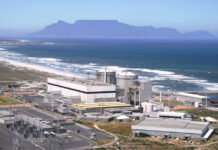CONTROL systems, together with AES’s Remote Monitoring System (RMS) play a vital role in ensuring the safe and smooth operation of boilers. This is according to Dennis Williams, Commercial Director of Associated Energy Services (AES), a leading operations and maintenance service provider to the steam and boiler sector.
Although these systems operate independently, they combine to provide important technical and operational insights. Control systems ensure stable operation within dynamic systems and direct activities. AES’s RMS is a user interface that records, transmits and stores data from boilers for user analysis.
“It is easy to forget that the generation and use of steam from a boiler – a pressure vessel – is a potentially dangerous activity and that suitable care, skill and caution should be exercised. AES has over 25 years’ operations and maintenance experience, as well as ISO certifications covering occupational health and safety (OHS) and the environment.
However, this should be a space where we are consistently mindful of new challenges to ensure complacency does not set in,” Williams advises.
The same goes for downtime: “Every input can have an impact on operations, so data is key – from the change in flue gas temperature to the variations in fan current draw. After an incident, the aim is to understand the root cause and prevent it from recurring,” he points out.
Steam pressure management
AES utilises its RMS on nearly all client sites. Each user has a unique steam demand profile, which is determined by the client’s particular operations.
Williams points out that RMS enables clients to get a full view of operations: “Unlike electricity, which is supplied instantaneously – allowing for very effective load following – there is an inherent delay in steam flow. A mismatch in steam demand versus supply manifests in a change in the steam system pressure. If less steam is generated and supplied than is demanded by the production process, then the steam pressure will drop.
“A better control system with advanced control philosophy will allow the boiler system to react quicker and with better combustion – and therefore supply the steam timeously, maintaining steam pressure while also achieving efficient use of fuel,” he explains.
If multiple boilers work together to meet the site steam demand, a strategy is needed to coordinate these, forming a balanced system.
Although control systems are required for every boiler – and manual intervention can be impractical, unsafe and illegal – the complexity and sophistication of control systems varies.
When steam demand fluctuates massively – and if fuel is highly variable and there are frequent equipment changes – a sophisticated control system allows the boiler to better manage that. Examples are food production facilities with multiple operating lines, beverage production facilities and batch manufacturing.
“Control is about minimising the variation between ideal operating parameters (percentage excess air, fuel delivery rate, feedwater temperature and flow) and the actual operating parameters achieved under operational loads. This “delta” variance is essentially a measure of how far away from ideal operating conditions the boiler is. Inefficiencies need to be minimised to maximise stability of steam pressure and optimise combustion to minimise emissions,” Williams explains.
“We strongly recommend that all manufacturers maximise the use of control systems and remote monitoring system technology, as fuel costs, emissions controls and other pressures all benefit from better control, even on stable steam loads,” he concludes.















